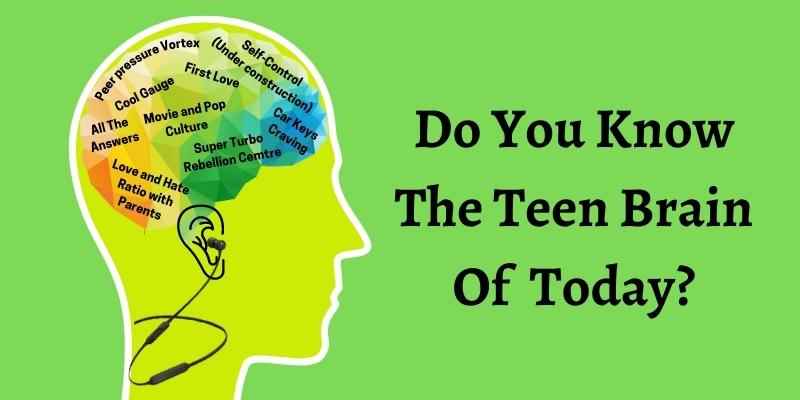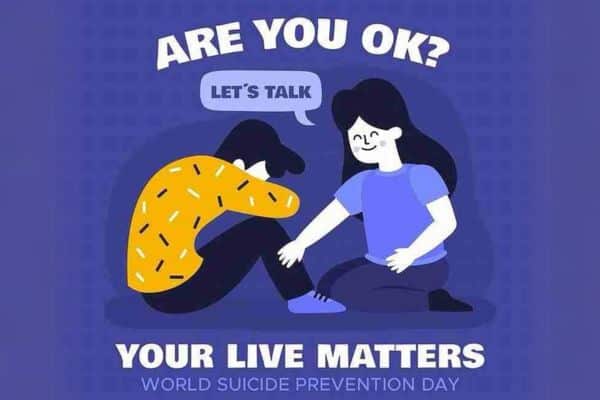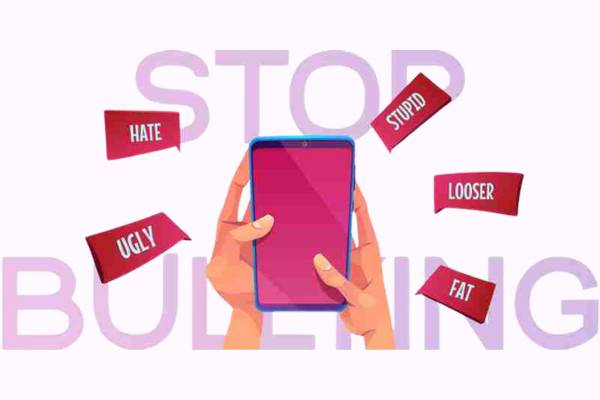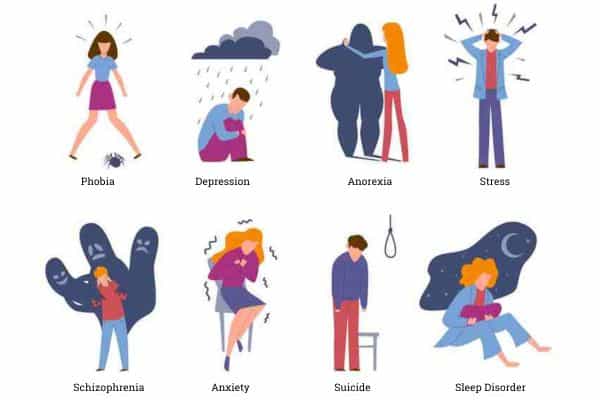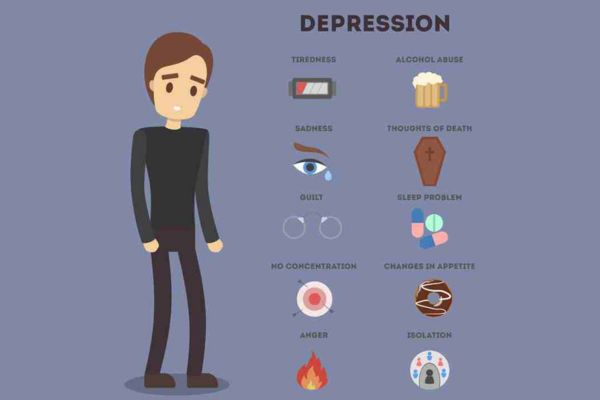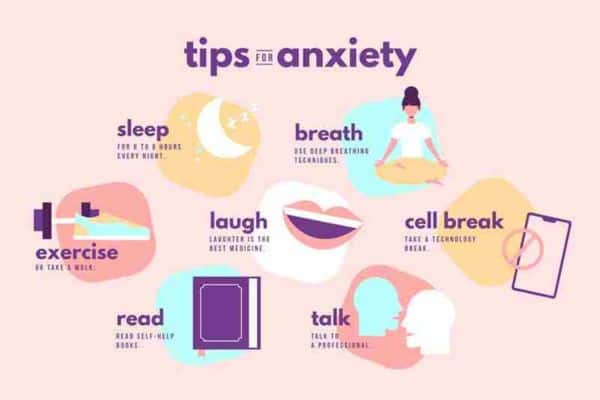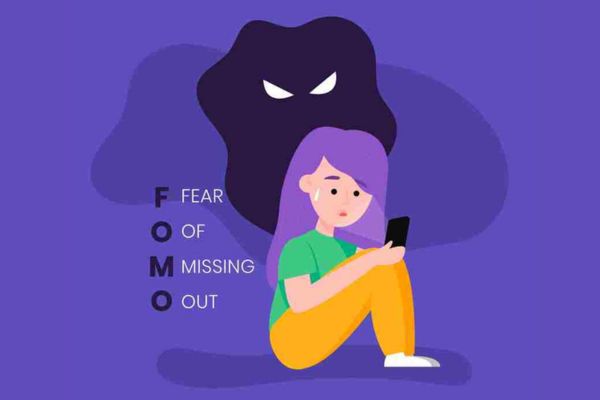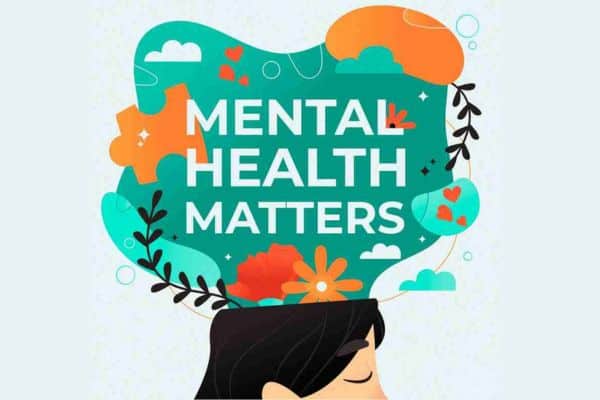“What mental health needs is more sunlight, more candor, more unashamed conversation” – Glenn Close
Adolescence is that bridge that leads to becoming an adult, but that journey is one of the most challenging obstacles teenagers face today. It’s a unique, influential and decisive time that tests one’s true personality.
In this stage, many physical, emotional, environmental and social changes make teens vulnerable to mental health problems, which need to be addressed in the time we live in now.
Physicians look for specific criteria to pinpoint mental illnesses, but the criteria for teens is different.
E.g., For a person with a depressive disorder, physicians tend to look for depressed moods or a lack of interest in activities, but in teens, these signs can easily occur due to bad grades, fights with friends, embarrassing moments, or simply the hopes of having a perfect, stress-free high school experience with a constant danger to their social standing.
7 Symptoms That Are Extremely Common In Teens, Leading To A Depressive Disorder Are:
– Changes in sleep pattern
– Recent onset of guilt
– Fluctuations or changes in energy levels
– Less concentration or changes in their ability to complete tasks
– Transposed appetite
– Lack of motivation
So, the lesson here is that if a teen shows occasional flashes of anger or acts moody, or just wishes to be with their friends all the time, there’s nothing to worry about!
The Most Prevalent Factors Which Cause Stress in Teens Are:
– Societal and environmental pressure making them desire a better body or better features
– Pressure to match up to a false narrative of how you are ‘supposed’ to be as compared to your peers
– Exploring one’s sexual identity.
– Excessive use of technology from early ages, and the implied, overbearing standards and expectations of the vortex of social media
– Unstable home life
– Relationships
– Mental violence in the form of bullying
– Socio-economic problems
Some teens are often at higher risk of mental health issues due to their fragile living conditions, stigma, discrimination, exclusion, lack of services and more.
The drag of media, self-consciousness and rigid gender norms fan the flames of disparity between teens’ experienced reality and their perceptions and dreams for the future.
The Most Prevalent Illnesses in Teens Are:
– Sweeping anxiety- needless concern regarding day-to-day life
– Social phobias- an excessive feeling of self-consciousness and insecurity in extensive social settings
– Depression- constant feelings of sadness, anxiety and emptiness
Some observed symptoms of generalized anxiety disorder are:
– Restlessness or on edge
– Easily tired
– Lack of concentration
– Constantly irritated
– Experiencing muscle tension
– Uncontrollable worrying
– Disruption of sleep pattern
Common anxiety disorder suspicions are:
– Anxiousness creeps in at the thought of socializing
– Experiencing major self-consciousness and an inherent fear of humiliation, embarrassment, rejection, or offending someone
– Conscious of being judged
– Feeling anxious days or weeks prior to an event
– Avoiding places where people may be
– Struggling to maintain friendships
– Sweating or trembling near others
– Feeling nauseous around people
Signs of depression are:
– Feeling constantly sad, anxious, or empty
– Newfound feelings of hopelessness or pessimism
– Struggle against irritability
– Feel guilt, worthless, or helpless
– Drifting apart from activities that once gave you joy
– Feeling down, or fatigued
– Moving or talking slower than usual
– Restlessness
– Struggling against decisiveness and good memory
– Feeling questionable changes in appetite and weight
– Experiencing suicidal thoughts
– Mysterious and constant pains
Knowing these symptoms and signs is crucial as we often don’t realize what teens may be going through when the signs are staring us in the face, but being there for them, and helping them through the journey, towards adulthood is more important. Especially in a time like today, where drugs are so commonly found in high schools as an effect of mental health issues, and social media has taken over the lives of teens.
Ways To Control Symptoms and Manage Mental Health Problems in Teens Are:
– Recognizing irritants- like an uneasy sleep schedule, skipping meals, or just not being able to keep up with a daily routine- and seeking a diagnosis
– Adolescent Counselling– this helps open up, talk, and understand your feelings, as well as trying to overcome them
– Taking psychiatric medications, which are very often used by high school students and are generally deemed as effective
Some Key Facts Are:
– Mental health conditions bear the burden of 16% of all global diseases and physical harm in people aged 10-19 years.
– The more significant part of all mental health conditions spark by the age of 14, but the majority of these cases go undetected and untreated
– Globally, depression is one the most dominating causes of illnesses and disability among teens
– The sequel of not addressing teen mental health conditions pry into their adulthood, threatening a collective of their physical and psychological health, and limiting their window to lead fulfilling lives
– 1 in 4 teens is a heavy social media user, using minimum two different types of networking sites every day
– More than a third of teens today visit their main social media account multiple times a day
By How Much Is the Teen Brain Affected By Social Media?
For multiple teenagers, social media has become an addiction like no other, silently taking control of their lives, and affecting their emotions. In a study done by the researchers from the UCLA brain mapping center, they discovered that some parts of the teen brain are activated and instantly energized by “likes” on their social media, making them feel the need to keep using social media more and more.
In another part of this study, they could see a significant correlation between social media and how their peer’s way them. Teenagers were shown neutral as well as risky photos, and it was revealed that the type of photo was not a factor or a criteria for “liking” that photo on social media. They realized that teenagers are more likely to “like” popular photos, without a second thought to the content, putting them under the spell of social media. This very action proves that peers can easily sway the minds of teens, for better or worse. Constantly “liking” photos without thinking twice about the content or caring about its impact, makes them more and more ignorant, without a sense of responsibility, creating mental health problems as they slowly detach themselves from society, and this has become a leading cause for problems like depression and anxiety in teens.
Are Mental Illnesses in Teens Increasing?
Mental illnesses, especially in teens, are on a steep rise as new advances in technology, social media, and things like electric cigarettes are made. Mental illnesses are avertable, but they often tend to exacerbate as the symptoms seamlessly merge and become our, or a part of our lived reality and become all too common to seem out of the ordinary. Parents often go into denial as they see these symptoms settling into their child’s life and procrastinate to either have a conversation or have a diagnosis. The most common stressors may not lead to depression or anxiety, but they may still be mentally damaging and, if ignored, could result in those problems later on.
Reference

